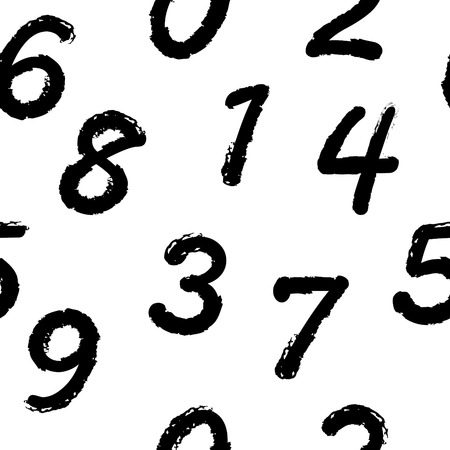Introduction to Retrogrades and Their Cultural Impact in the UK
If you’ve ever heard someone on a British university campus mutter, “Must be Mercury retrograde,” you’re not alone. Planetary retrogrades—most famously Mercury’s—have woven themselves into the fabric of British student life, merging celestial curiosity with everyday banter. But what exactly is a retrograde? In astrological terms, a retrograde happens when a planet appears to move backward in its orbit from our perspective on Earth. Far from being just an astronomical quirk, these periods are rumoured to stir up confusion, delays, and unexpected shifts in communication—a notion that resonates powerfully with anyone juggling coursework, exams, and friendships.
The intrigue around retrogrades isn’t new, but their popularity has surged among UK students thanks to a vibrant mix of tradition and contemporary pop culture. From memes shared in group chats to astrology-themed societies popping up at universities from Oxford to Manchester, talk of planetary motion has become more than just late-night pub chatter. For many British students, referencing retrogrades serves as both a lighthearted coping mechanism and a subtle nod to the complexities of modern student life. With roots stretching back to ancient astrological traditions and branches extending into today’s social media-driven discourse, retrogrades have become an unlikely yet enduring cultural touchpoint on campuses across the country.
2. Academic Pressures: Retrogrades During Exam Season
Every spring and summer, as British students face the high-stakes exam period—whether that’s GCSEs, A-levels, or university finals—the cosmos seems to come up in conversation almost as often as revision strategies do. Retrogrades, especially Mercury retrograde, are frequently blamed for everything from lost notes to inexplicably malfunctioning printers in campus libraries. The cultural reference has become a kind of collective inside joke, but it also reveals something deeper about how students cope with academic pressure.
Retrogrades as Scapegoats: A Modern Folklore
During exam season, British students often use planetary retrogrades as a shorthand for bad luck or technical hiccups. When Wi-Fi crashes just before an essay deadline at Oxford, or someone accidentally deletes their revision timetable at a sixth form in Manchester, you’ll hear mutterings of “typical Mercury retrograde” echoing through the corridors. While most students don’t literally believe the planets are sabotaging them, referencing retrogrades provides a humorous way to externalise stress and create camaraderie amid shared struggles.
The Influence on Revision Habits
Interestingly, some students adapt their study habits based on these astrological cycles—if only half-jokingly. For instance, there’s a trend towards double-checking digital backups and favouring handwritten notes during perceived ‘risky’ retrograde phases. Here’s how some typical behaviours shift:
| Habit | Non-Retrograde Period | During Retrograde |
|---|---|---|
| Note-taking | Mainly digital (laptops, tablets) | More handwritten backups; printing hard copies |
| Group Study Sessions | Flexible arrangements; casual planning | Extra emphasis on confirming times/locations; contingency plans for tech failures |
| Exam Prep Mindset | Focused on content mastery | Heightened anxiety about logistics and communication mishaps |
The Collective Mood: From Banter to Bonding
The British knack for dry humour comes into its own here. Jokes about Mercury retrograde spread quickly via WhatsApp groups and TikTok memes, offering both comic relief and a subtle acknowledgement of shared anxiety. This ritualised blaming of the stars is less about astrology itself and more about maintaining solidarity—a way for students from London to Glasgow to say, “We’re all in this together.” In this way, retrogrades have woven themselves into the fabric of student life, shaping not just attitudes but the very rituals of revision season.

3. Communication Glitches: Navigating Coursework and Group Projects
If there’s ever a time when British students collectively sigh in exasperation, it’s during Mercury retrograde—especially when it comes to the labyrinth of coursework and group projects. The classic retrograde effect? Digital miscommunications run rampant, turning once-smooth teamwork into an episode straight out of a campus sitcom. Picture this: you’ve meticulously crafted your essay, only for Turnitin to mysteriously reject your upload at the last minute, or perhaps that vital group chat on WhatsApp collapses into confusion because no one can agree on the meeting time (was it 4pm BST or GMT?).
These “lost-in-translation” moments are almost a rite of passage in British higher education, where collaboration is key but tech mishaps are all too familiar. One misplaced comma in an email or a missed Teams notification can spell disaster for group presentations—cue the frantic scramble to patch together slides five minutes before you’re due to present in front of the seminar leader.
In true British fashion, students often lean into self-deprecating humour as a coping mechanism (“At least my Wi-Fi is as unreliable as my sleep schedule!”), yet the underlying stress is real. Retrograde periods seem to magnify those everyday hiccups, making effective communication feel like navigating through thick London fog.
Still, these disruptions aren’t without their silver linings. They nudge students towards resilience and adaptability, encouraging creative problem-solving—like resurrecting old-school face-to-face meetings over a cuppa or rediscovering the charm of handwritten notes when digital platforms go awry. Mercury retrograde may throw a spanner in the works, but for British students, it’s just another chapter in the ongoing saga of academic life.
4. Social Circles and Drama: Friendship Dynamics Under Retrogrades
If you’ve ever noticed your flatmates acting a bit off or the group chat blowing up with drama, chances are someone’s already blamed Mercury retrograde. In British student life, astrology is more than just a meme—retrograde periods are often used as shorthand for those times when friendships wobble, house tensions rise, or awkward miscommunications spiral into full-blown banter (or, worse, a proper falling out).
Retrograde Realities in Shared Houses
Living in shared accommodation is a rite of passage for most UK students, but throw in a retrograde and suddenly the kitchen rota’s gone rogue, milk keeps mysteriously disappearing, and passive-aggressive Post-it notes multiply overnight. In these moments, “It must be Mercury retrograde!” becomes a running joke—and sometimes a genuine comfort when nobody can explain why everyone’s on edge.
How Retrogrades Stir Up Student Social Life
| Retrograde Effects | Common UK Student Experiences |
|---|---|
| Banter escalating to beef | Group chats filled with sarcasm that tips into real arguments |
| Miscommunication | Mates showing up at the wrong Wetherspoons or missing society meetings |
| Emotional moments | Unexpected late-night heart-to-hearts in the corridor or garden |
| Friendship fallouts | Temporary cold shoulders over minor misunderstandings |
The Banter-Fallout Spectrum: A British Take
The British love for banter means retrograde-induced tension often starts as playful teasing. However, under cosmic pressure, jokes can quickly turn sour. Students might find themselves replaying conversations (“Was I too harsh?”) or sending classic British apologies (“Sorry if I was being a muppet last night”). Yet, these periods can also lead to deeper bonds as friends debrief over cups of tea, dissecting what went wrong and blaming the stars rather than each other.
Ultimately, while not everyone takes astrology seriously, retrogrades offer a culturally accepted way to acknowledge when things get weird among mates. They become an excuse to forgive small dramas and remind each other that sometimes, even in the best student houses or tightest societies, it’s not just you—it really is the universe messing about.
5. Mental Health and Coping Strategies: A Uniquely British Approach
Retrogrades might sound cosmic and mysterious, but for British students, these planetary slow-downs often become the backdrop for real-life anxieties—from looming exam deadlines to the ever-changing social landscape of university life. Yet, if there’s one thing Britain does well, it’s mixing a bit of cosmic curiosity with practical coping methods steeped in local tradition.
Finding Calm in Chaos: The Power of the British Cuppa
When retrograde chaos strikes—missed trains, muddled group chats, or those moments when revision notes seem to vanish into thin air—the first port of call for many is a good old-fashioned cup of tea. There’s something deeply reassuring about queuing for a cuppa with mates in the student union, sharing sighs over Mercury’s mischief while dunking digestives. This ritual, simple yet sacred, often becomes a collective grounding moment during times of uncertainty.
Laughter as Medicine: Meme Culture Meets Astrology
Uni students across the UK have also adopted a distinctly modern method for weathering retrograde-related stress: memes. Scroll through any campus Facebook group during exam season and you’ll spot hilarious posts fusing astrology with daily uni struggles—think “Mercury in Retrograde is why my WiFi failed during my Zoom seminar.” These shared jokes do more than entertain; they create a sense of camaraderie, making everyone feel less alone in their cosmic woes.
Community Support: Talking It Out
For all the banter, British students are also increasingly open about mental health. Retrogrades might offer a tongue-in-cheek reason to check in on friends or pop down to a campus wellbeing drop-in session. Whether it’s through peer support groups, late-night chats in halls, or university-run mindfulness workshops, blending retrograde talk with genuine self-care is becoming part of the student experience.
So while retrogrades may add an extra layer of unpredictability to British student life, they also highlight the resilience and resourcefulness that characterise campus culture here. By merging astrological intrigue with time-honoured British coping strategies—be it tea breaks or meme-sharing—students find ways to navigate both the stars and their studies with humour and heart.
6. Institutional Reactions: How Universities Acknowledge Astrology Trends
As astrology gains popularity among British students—especially during retrograde periods—universities across the UK have found themselves navigating this cosmic curiosity with a blend of tradition, humour, and genuine care. While the academic sphere remains rooted in evidence-based practice, there’s no denying the subtle yet growing influence of astrology on campus culture.
From Skepticism to Subtle Engagement
Most UK universities aren’t about to swap the periodic table for planetary charts, but many have noticed how astrology, particularly retrogrades, shapes student anxieties around exams, deadlines, and social dynamics. Instead of dismissing these concerns outright, institutions are increasingly weaving light-hearted references into their communications. Student union newsletters might cheekily reference Mercury retrograde when reminding students to double-check exam timetables or submit coursework ahead of time. Such nods offer relatability and help diffuse stress without taking a firm stance on astrological validity.
Wellness Initiatives and Cosmic Conversation
The link between astrology and wellbeing hasn’t gone unnoticed by campus mental health and wellness teams. Some universities have introduced workshops on stress management that acknowledge how students’ beliefs—including those about retrogrades—can impact anxiety levels. Mindfulness events or “self-care under the stars” evenings may pop up around notable astrological dates, providing both a chance for relaxation and an inclusive space for conversation. While always framed as optional extras rather than official doctrine, these initiatives reflect a willingness to meet students where they are culturally.
Social Media Savvy: Engaging Students Where They Scroll
University social media managers have proven especially adept at leveraging astrology’s popularity. Instagram stories or TikTok posts from official accounts might poke fun at Mercury retrograde mishaps (“If your Wi-Fi’s gone wonky again—don’t blame IT, blame the cosmos!”) or share horoscopes tailored to exam season. This playful engagement helps foster a sense of community while subtly promoting key university messages—reminding students about support services or important academic dates through content they’re more likely to engage with and share.
The Balance Between Tradition and Trend
Of course, British academic institutions tread carefully: astrology remains firmly outside the curriculum, save perhaps as a topic in cultural studies or history modules. Yet, by acknowledging its presence in student life—from social circles to meme culture—they demonstrate a nuanced understanding of modern student experience. In essence, while no one expects Cambridge dons to consult their star sign before marking essays, today’s universities are learning that a dash of cosmic humour goes a long way in connecting with their student body—and supporting them through the trials (and retrogrades) of academic life.


